
The great King Solomon is said to have invented the earliest system of aqueducts, which turned the harsh, arid lands of the middle east into a fertile, prosperous nation.
Can you follow in his footsteps, and bring the life-giving water to your people?

Your goal is to amass as many victory points as possible. You do this by building improvements to the desert, and sacrificing goods at the temple.
The game is played in hands. There is a deck of 21 cards, and you draw hands of five from it.
You can then take as many actions as you like during the year. Actions are provided by the hexes on the board and by cards in your hand.
Clicking on a hex allows you to take the action associated with the hex. You can use each hex once during each hand. There are several different hex types with different effects:
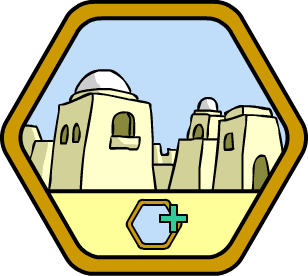 |
VillageUsing a village lets you play a card from your hand to create a new type of hex. You need to be able to pay for the card from resources on the hex. Building a hex destroys the card used to build it. When you build a hex, you get victory points equal to the height zone it was built in (one, two, or three). |
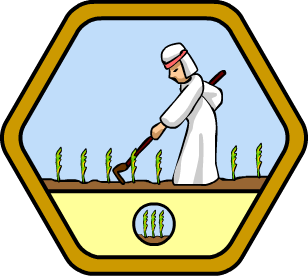 |
FieldUsing a field creates a "grain" resource. |
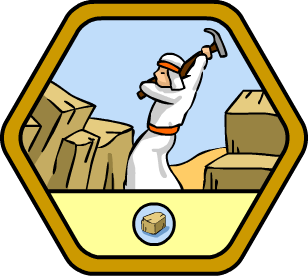 |
QuarryUsing a quarry creates a "stone" resource. |
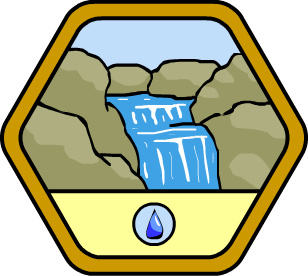 |
SpringUsing a spring creates a "water" resource. |
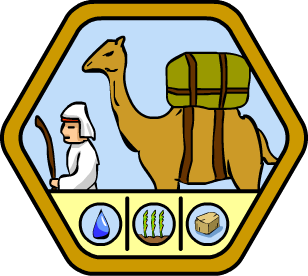 |
Trade RouteUsing a Trade Route lets you choose any type of resource to create. |
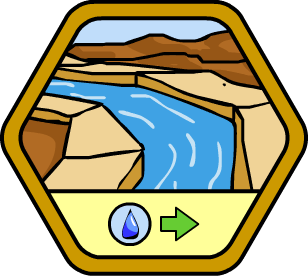 |
AqueductUsing an Aqueduct allows you to move water resources freely between the hex and all adjacent hexes except moving them uphill. |
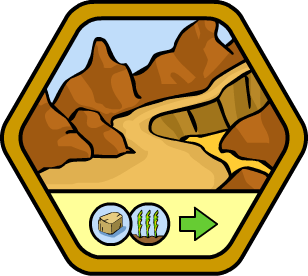 |
RoadUsing a Road allows you to move grain and stone resources freely between the hex and all adjacent hexes. |
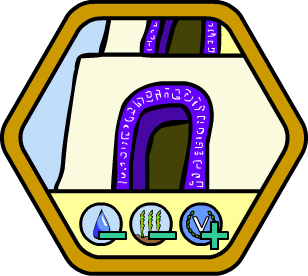 |
TempleUsing a Temple converts pairs of water and grain resources in to victory points. |
The primary use of your cards is to create hexes in your lands, but the cards can be used for two other things:
You can discard a card from your hand to select a hex and move one of the resources there into an adjacent hex.
You can destroy a card from your hand to choose a resource and add it to one of your villages. There are only 21 total cards in your deck, so when you destroy a card, it will not reappear in later hands.
The game ends after ten "years" (hands), and your final score is tallied. See how high a score you can get!